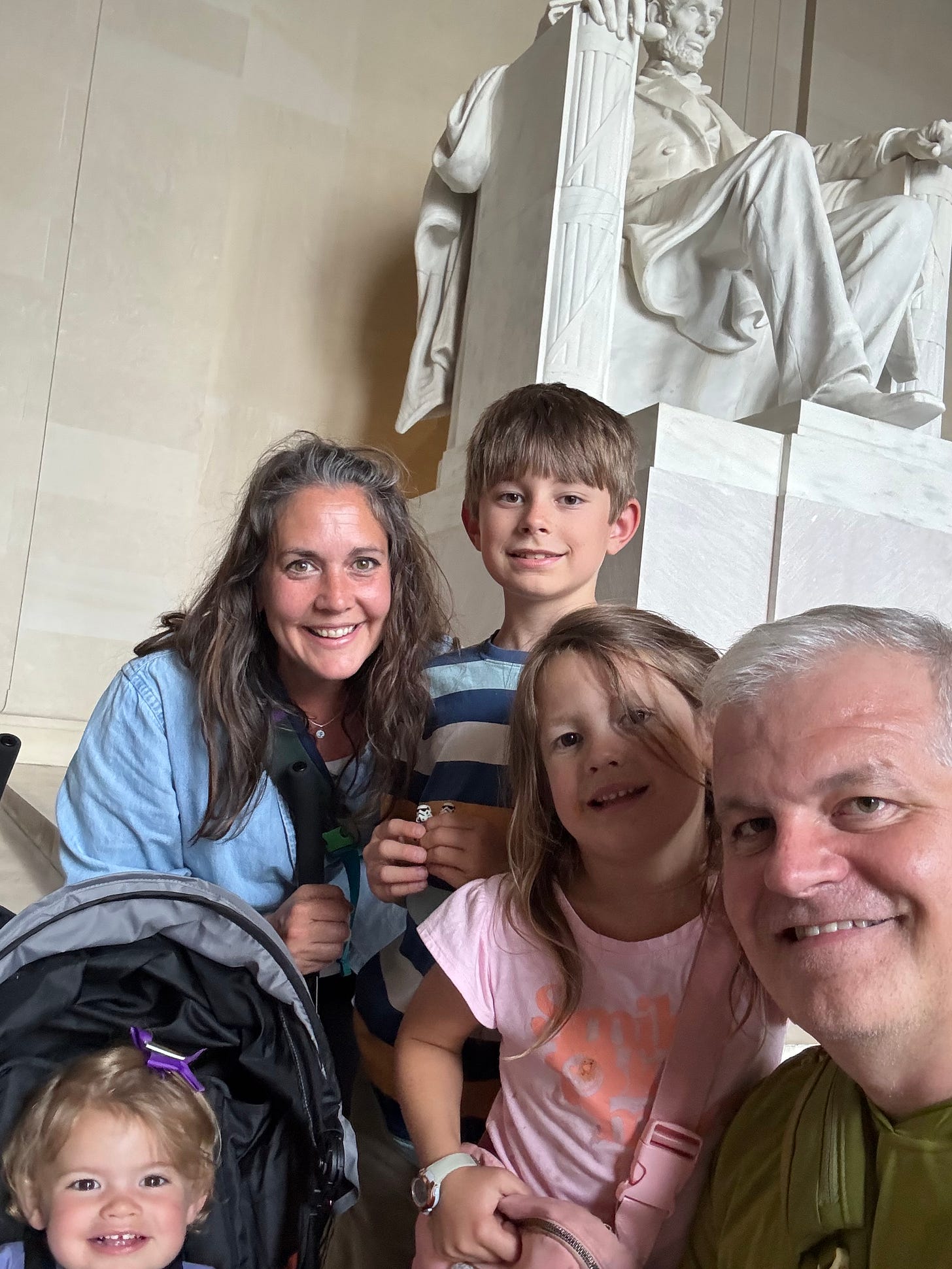Washington D.C. and New York
On the Road this Week
The family and I are on the road this week. Merianna is graduating from a fellowship at Union Theological Seminary this weekend, so we decided to make it a road trip and have some meetings and research time here in D.C. as well as lining up a few opportunities for Carolina Ecology in NYC as well as at Yale later this week. It’s a busy and exciting time for us and getting Carolina Ecology off the ground, and I’m glad our children are here to be a part of it all.
When we travel throughout the Carolinas, I’m accustomed to waking early and either taking a walk or at least getting a few minutes of morning reflection and prayer time while opening the Merlin Bird ID app to see what local feathered friends might be joining me along the way.
The Smithsonian has done a tremendous job of creating as many small spaces in the heart of D.C. as possible full of native plants and attractive plants for local insects and birds. Sadly, where we’re staying in Alexandria (in the beautiful Del Ray neighborhood) isn’t all that friendly to finding new local bird species.
I wrote in my journal earlier this morning,
“What of a world with no trees, no green hues, no morning finches and blue song birds?”
while enjoying a cup of coffee on the porch overlooking beautiful townhomes but not much green space or feathered friends before heading out for tours with the family and a few meetings.
Of course, Washington (like every great city) has an abundance of green spaces and opportunities to be out and about. One of my main pet peeves is when we either project or make excuses about “being in nature” and “cities” without adequately seeing the wider context.
Humans in human cities are experiencing “nature” just as someone who lives in the center of a jungle away from any commonly-accepted notion of urbanity. The variety and numbers of species may be fewer, but make no mistake that they are there. Ecology as a concept is not equivocal with the common misinterpretation of “nature” or “being in nature” as if there is a pristine wilderness just outside the city walls full of mystery and suspense. There can be, of course, but the Western conception(s) of “nature” hold us back from both imagining and realizing our own individual and collective roles in the wider fields that we inhabit.
We’re blessed to have the green spaces we do in many areas of the Carolinas. But don’t mistake ecologies for healthy root systems and beautiful rolling views of hills or sunrises over the Atlantic. There are incredible ecologies on every street corner in D.C. just as there are along the Blue Ridge Parkway or Table Rock State Park.
There’s no line on the horizon for distinguishing how integral we are to our ecologies and how integral our ecologies are to us human beings.
I’ve had U2’s No Line on the Horizon in my head all day being amongst the intoxicating feel of collective consciousness that is downtown Washington, DC. It seems like an appropriate D.C. song these days.



